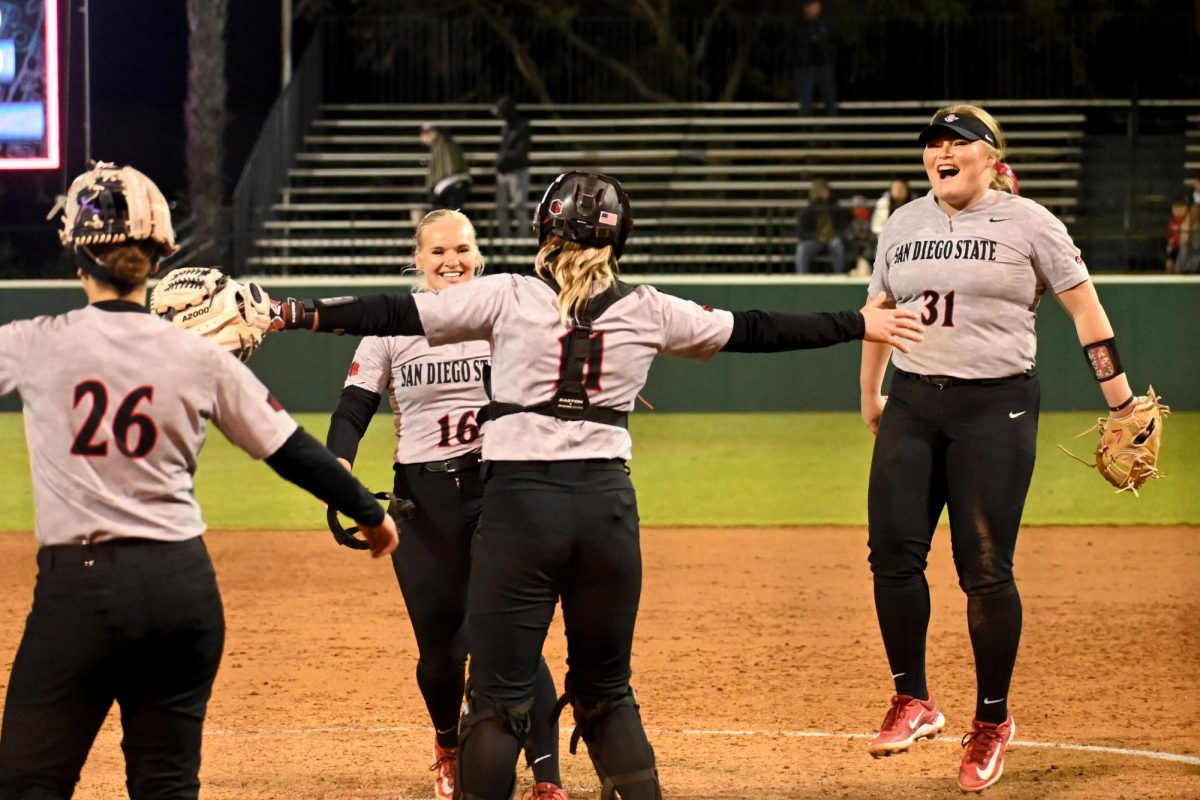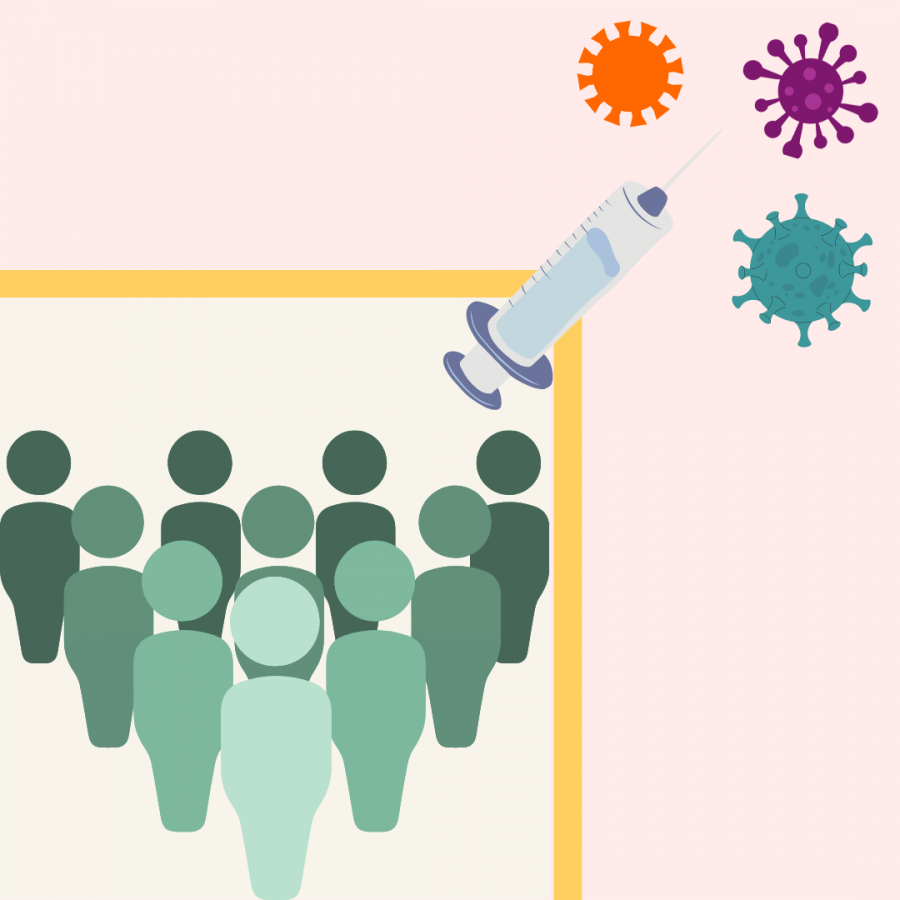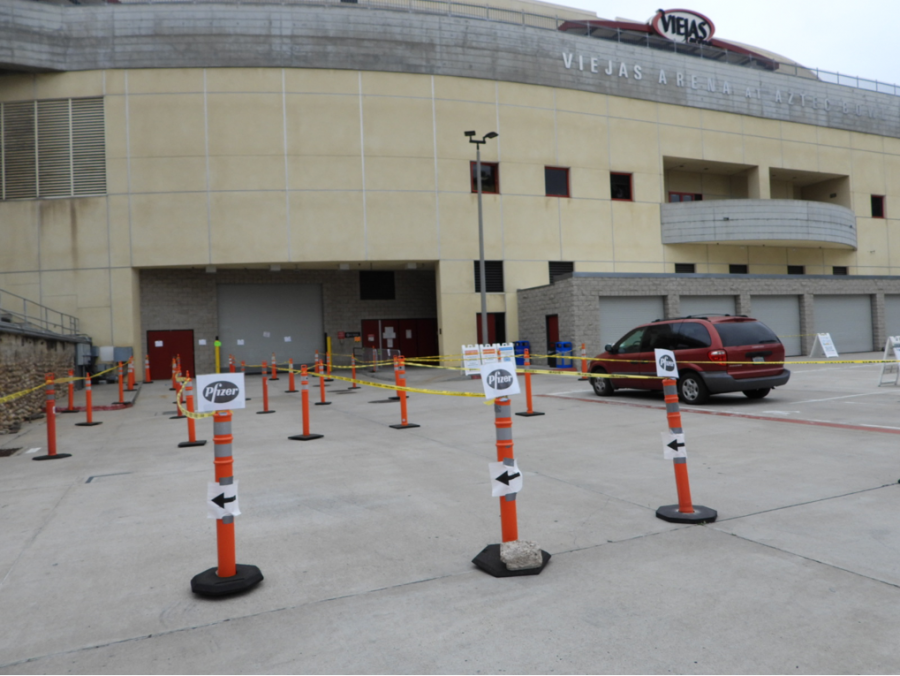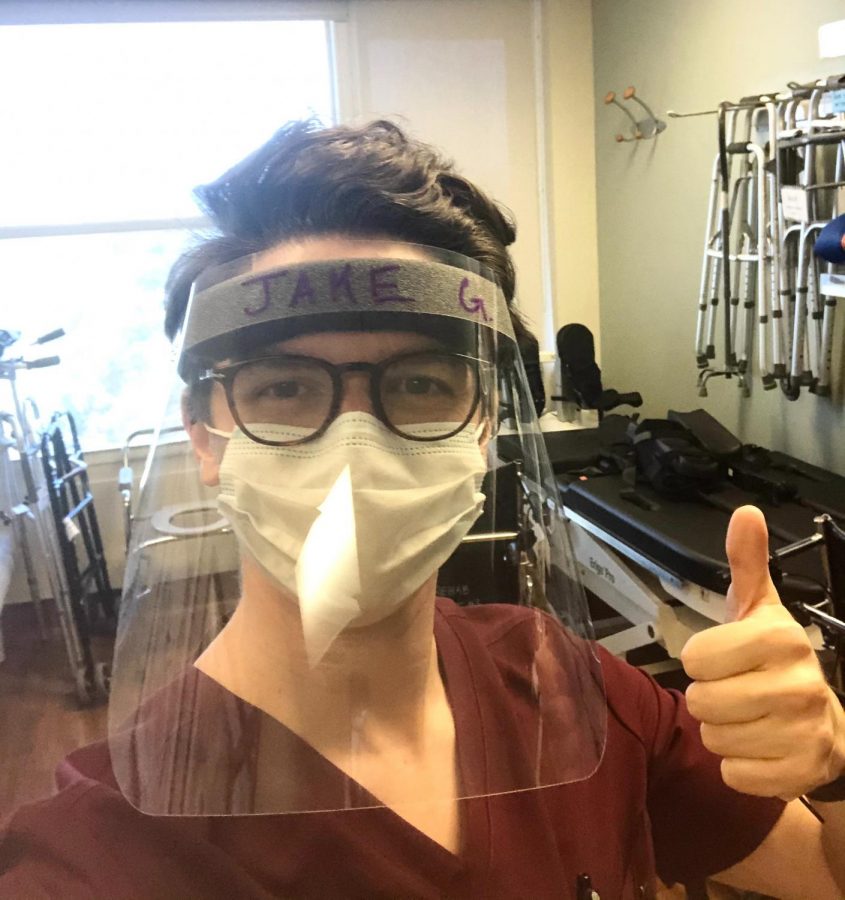Humans are social beings.
College students in particular crave human interactions.
This is a period in life when many young people leave their homes for the first time to live independently. Students are encouraged to go out, have fun, meet new people and be social during their college years.
With many students experiencing a lack of human connection for several months now since the beginning of the COVID-19 quarantine, there is a strong desire to go out and socialize. Freshmen, in particular, may feel the desire to reach out to new people as they begin to try to navigate college on their own.
While this desire for human connection is certainly understandable, students need to be responsible and limit their social interactions as the COVID-19 pandemic continues to plague our communities.
San Diego State is encouraging students to keep six feet of space between people outside of their household, wear masks in public spaces, and not attend or host any parties. Additionally, the Interfraternity Council (IFC) has imposed a social moratorium banning social events such as fraternity parties. SDSU has stated they will be holding students accountable and will investigate any possible violations to their COVID-19 policy.
No matter how much the university promotes social distancing practices and tries to reinforce preventative measures, students are still going to socialize and party with one another. With only one week into classes, there have already been several sizable gatherings over the last few weekends and likely more are to follow.
There have been several recently reported cases of COVID-19 at SDSU since the beginning of this school year which began just over a week ago. We have already seen mass breakouts of COVID-19 with hundreds of infected students at other universities across the country as they begin their fall semesters. SDSU and students need to take serious action if they don’t want to follow suit.
Students must resist the urge to host or attend any parties or large gatherings. Being in such close proximity with others— possibly while sharing drinks or nicotine devices with one another— greatly increases the chances of becoming infected with COVID-19.
There are countless stories on social media of people who were infected with COVID-19 after attending a party who deeply regret failing to take the virus seriously. They are now warning others to not repeat their mistakes. SDSU students need to take heed of their message.
Many people will get a version of COVID-19 that is mild or they may be completely asymptomatic and will recover quickly. Others may not be so lucky. Although many of the most severe cases of COVID-19 are among the older population, there are still instances of young, healthy individuals being hospitalized and put on ventilators. Even after recovery, some people are reporting lingering effects such as fatigue and shortness of breath. There is still a lot about COVID-19 that remains unknown and you aren’t going to want to find out from firsthand experience.
One night of fun is not worth getting this disease.
If you still don’t care if you get infected with COVID-19, consider the fact that you could be putting others at risk. Think about the people you live with— whether you live at home with your family or with roommates. Think about the members of your community, such as grocery store workers who have no other choice but to work and put themselves at risk. Think about the healthcare professionals who have been working endlessly around the clock since the beginning of this pandemic. If you unknowingly contract COVID-19 and continue to socialize, you will be aiding the spread of the disease and contributing to the burden this pandemic has placed on our society.
Partying is very much a part of the college experience, but it needs to be put on hold for the time being as we continue to combat this virus.
Once COVID-19 is contained and we have effective vaccines and treatments, we will have plenty of nights to party as hard as we can. Until then, we all need to do our part in this pandemic.
Catherine Van Weele is a senior studying political science and economics. Follow her on Twitter @catievanweele.














